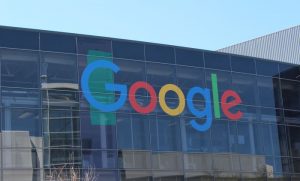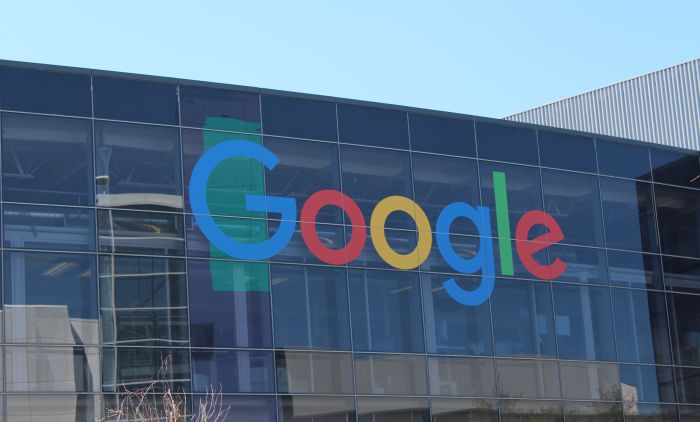This week in political economy.

- The backlash against big tech that began in 2017 continues in earnest. The Economist’s cover story this week: “How to tame the tech titans.” It’s worth taking the time to read the entire issue, including a piece that reviews possible antitrust remedies for tech platforms and cites Stigler Center directors Luigi Zingales and Guy Rolnik. The Wall Street Journal also explains the antitrust case against Facebook, Google and Amazon, wondering if, much like the similarly dominant Standard Oil and AT&T, they should be broken up. In The Week, James Pethokoukis offers a counter-opinion, calling the antitrust case against big tech platforms “astonishingly week.”
- On a related note, 20 cities are still in the race for Amazon’s second headquarters. Something for the finalists to keep in mind: an Economist article finds that Amazon’s warehouses reduce local wages, suggesting that Amazon is underpaying its employees. In the Financial Times, Tim Harford also presents the case for ending Amazon’s dominance.
- Chris Christie may not be the governor of New Jersey anymore, but apparently before he left office he was still pushing for a plan to offer Amazon $5 billion in taxpayer subsidies, according to the International Business Times.
- Facebook will now ask users to rank news organizations they trust.
- Capitalizing on President Trump’s new tax law, Apple announced plans to build a new US campus and bring back the vast majority of the $252 billion in cash that it holds abroad—for a one-off repatriation tax payment of $38 billion. In an interview with ABC News, Apple CEO Tim Cook sounded positively jubilant about the new reduced corporate tax, saying the old corporate tax “was never good for the United States.” Apple may have saved billions in taxes under the new system, but is only one of numerous American corporations who stashed billions of dollars in profits overseas.
- From Vice: other companies celebrated the new corporate tax cuts by laying off workers.
- From The New York Times: Laurence Fink, BlackRock founder and CEO, has informed business leaders that their companies need to do more than make profits and must contribute to society as well if they want to receive support from BlackRock. Fink’s message echoes the message of a recent paper by Oliver Hart and Luigi Zingales. It is also quite a different tune from his 2016 appearance in a Davos panel organized by the Stigler Center, in which he said: “We only have one responsibility as investors: to maximize return. That’s it. So basically we can tell a company to fire five thousand employees tomorrow, and if that maximizes return for the company we did something well.”
- A piece by Bloomberg reporter David McLaughlin profiles the new movement aiming to remake US antitrust, headed by Open Markets Institute director Barry Lynn.
- The Wall Street Journal on the scandal unfolding at the World Bank after its chief economist, Paul Romer, admitted in an interview with WSJ that its competitiveness rankings may have been potentially tainted by the political motivations of World Bank staff. The report particularly rankled Chile, which according to Romer suffered in the rankings due to misleading changes in the methodology and is now accusing the World Bank of political bias.
- Also from International Business Times: President Trump is weakening payday loans rules—after receiving big donations from payday lenders.
- From MapLight: Americans for Prosperity, the conservative dark money organization associated with the Koch brothers, is refusing to disclose information about the size of its donations, in defiance of IRS regulations. Also, from Alex Kotch: After scoring huge tax cuts, Charles Koch showers House Speaker Paul Ryan with cash.
- International Business Times reporter Josh Keefe writes about a new working paper that argues Trump benefited from an “extraordinary influx of dark money” in the final days of the 2016 campaign.
- From The Hill: a waste management company that has been ordered by the Environmental Protection Agency to pay up to $115 million to clean up a major toxic waste site in Texas funded groups opposing the cleanup.
Chatter from the Ivory Tower
- A new CEPR discussion paper attempts to remedy the dearth of research on the labor market impact of occupational licensing in the European Union. Authors Koumenta and Pagliero find that around 22 percent of EU workers are affected by licensing, which delivers an average boost of about 4 percent to their wages and overall works to worsen wage inequality on the continent.
- Fascinating new research by Jeff Weaver, a UC San Diego postdoc, examines the extent and effects of bribery in public sector hiring for mid-level managers in a developing country and finds that new hires paid on average 17 months of salary to obtain the position, and that, surprisingly, the corrupt system does quite a good job at delivering qualified candidates compared to different merit-based hiring system.
- Last call! The deadline to submit papers for the conference on Corporate Political Engagement in Europe and the US (to be held June 9-10, 2018 at Oxford’s Blavatnik School of Government) is January 31.
Stigler Center Goings-on
- In the latest episode of Capitalisn’t, “Strange Bedfellows,” Luigi Zingales and Kate Waldock review a groundbreaking new study from Chicago Booth that sheds some light on how–and where and when–leaks are taking place during FOMC blackout periods. Are Fed leaks really such a big deal? And if it is what should be done about it? Download Episode 5 today.
- Bloomberg’s Odd Lots podcast hosts Stigler Center fellow Prateek Raj on his working paper about the decline of guild monopolies and development of markets in the sixteenth century Europe.
Disclaimer: The ProMarket blog is dedicated to discussing how competition tends to be subverted by special interests. The posts represent the opinions of their writers, not those of the University of Chicago, the Booth School of Business, or its faculty. For more information, please visit ProMarket Blog Policy.






